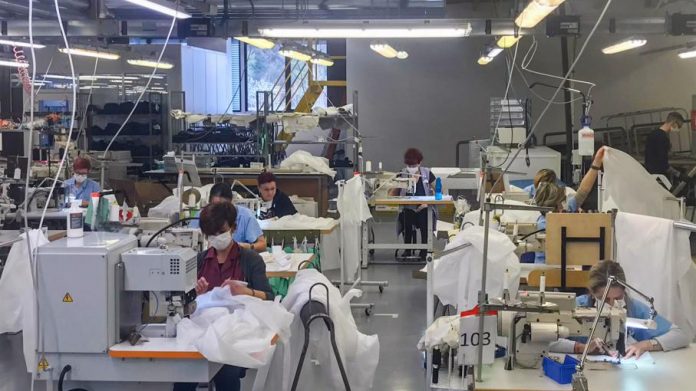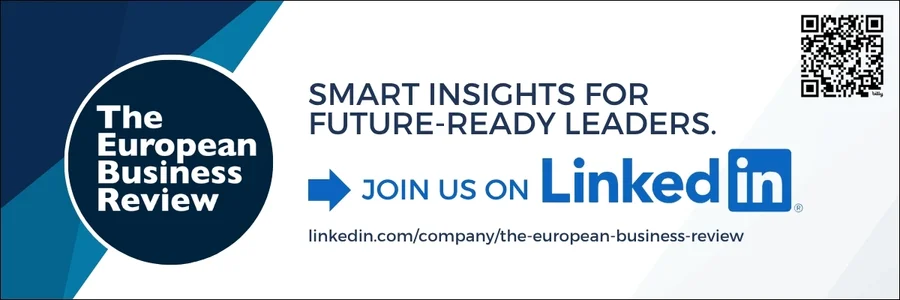By Kalyah Ford and Renée Karibi-Whyte
As the COVID-19 pandemic impacts hundreds of thousands of lives and the very fabric of society globally, corporate philanthropy is playing a significant role in helping to address some of the challenges and devastation left in its wake, particularly in Europe. While this was not universal—many corporations and related philanthropies were quick to react, others scrambled to find a way to contribute, and some stood still—those that had a well-defined view of their social compact were best positioned to act swiftly and purposefully.
Social Compact and the Crisis of Trust
What is social compact and why are those with a clear vision of it better able to respond to crises? Social compact is an entity’s explicit or implicit agreement with society about the value it creates, and it encompasses concepts such as accountability, legitimacy, transparency, and public trust. Governments, corporations, nonprofits, philanthropies and all institutions have a social compact, whether they articulate it or not. The social compact can change as a result of shifting external circumstances, political and economic conditions, or prevailing views on private wealth and public responsibility. It reflects an organization’s legitimacy in the eyes of those stakeholders and the public, as well as how it approaches the transparency and accountability that underpin its legitimacy.
Prior to the pandemic, many corporate foundations in Europe had been re-examining their social compact. This was largely prompted by growing criticism from public intellectuals, opinion leaders, and the general public of private philanthropy and the negative perceptions of its influence. This criticism was not limited to the philanthropic sector, but rather reflected an overall issue of trust in institutions. To wit, the 2020 edition of Edelman Trust Barometer, an annual global survey that measures trust in and credibility of government, businesses, NGOs and media, revealed a steady decline in trust on two distinct attributes: competence (delivering on promises) and ethical behavior (doing the right thing and working to improve society). None of the institutions examined scored well in both categories. This distrust was primarily based on fears about the future, and a growing sense of inequity and unfairness of “the system.”
The current pandemic has further exacerbated these sentiments, feeding public discontent and feelings of disempowerment by drawing increased attention to long-standing inequities, social injustices and other systemic shortcomings. When philanthropy—which is designed to serve the public good—is so closely connected to and dependent on capitalism as is the case with corporate philanthropy, the possibility for backlash, critique and scrutiny calls for a clear vision of social compact, and articulation of that vision through their actions.
What Recent Actions Reveal about European Corporations and Corporate Philanthropies
When the extent of the crisis created by the pandemic became apparent, many European corporate foundations stepped in. For example, Vodafone Foundation Germany began working with Germany’s Ministry of Education to provide tutorials and webinars for teachers. The Novo Nordisk Foundation, in Denmark, is funding DKK 50 million in grants for scientific, social and health outreach projects.[1] Similarly, the Carlsberg Foundation is funding grants to support researchers, art museums and youth civil society.[2]
Perhaps more surprisingly, European corporations have sprung into action, without waiting for or necessarily relying on their related philanthropic foundations (to the extent they have them). These responses have ranged from statements of support related to COVID-19, to monetary donations, to changing factories to produce needed materials.[3] In Italy, for example, luxury sportswear brand Moncler donated €10 million Euros for the construction of a hospital; Ferrero gave the same amount to the government to fight the disease; the Armani Group converted all of its factories to manufacture single-use medical overalls; and Prada committed to producing 80,000 medical overalls and 110,000 masks for medical workers. In the UK, online gambling company Bet365 donated £10 million to a National Health System (NHS) trust to battle COVID-19, and Dyson aims to manufacture 10,000 ventilators. Similarly, France-based LVHM converted cosmetics and perfume factories to the production of hand sanitizer. And British-Dutch transnational consumer goods producer Unilever donated free sanitizer, soap, bleach and food worth €100. Each of these examples—which occurred in a matter of weeks—exhibits how corporate philanthropy can be a powerful and agile instrument capable of swift action for public benefit, even without the formal structure of an established foundation.
The extent and speed of the corporate response speaks to a shift in social compact that seems to be happening on at least a limited basis in the corporate world, perhaps in response to the burgeoning criticism, public discontent and loss of trust. Karoline Heitmann, Corporate Initiative Manager from the European Venture Philanthropy Association (EVPA) notes that corporations are “seeing more of an internal and external push to redefine their business purpose around their social impact instead of financial return.” That’s not to say that corporations are deprioritizing financial return overall, but many are recognizing the growing importance of social impact given the role of corporations in society. Moncler CEO Remo Ruffini, in a statement discussing Moncler’s contribution recognized this role when he stated, “Milan is a city that has given us all an extraordinary time. We cannot and must not abandon it. It is everyone’s duty to give back to the city what it has given us so far.”[4] Holding company Gruppo Caltagirone’s Francesco Gaetano Caltagirone similarly recognized the duty of the corporate world in his statement, “In this difficult moment for the country, the business world must do its part.”[5]
One of the more interesting observations is the difference between the speed and agility shown by many corporations in Europe as compared to their corporate foundation counterparts. As noted above, several businesses were nimble enough to totally change over their production lines within a matter of weeks, while in many cases, corporate foundations responded in less radical ways. Inger Paus, Managing Director of Vodafone Foundation Germany, noted this difference, stating her belief that “the COVID-19 pandemic presents a big legitimacy crisis for foundations, because businesses and corporations are stepping up. Corporations are acting not like businesses but more like foundations, and are in the lead on addressing this crisis.”
A Re-imagined Social Compact
As the current situation reveals, corporations in Europe have found ways to amplify their nimbleness and impact on society, implicitly reconsidering their social compact as they adopt new tools and approaches. Even prior to this crisis, social compact in the European corporate landscape was shifting as, according to Heitmann, a growing number of corporations are exploring how they can integrate inclusive and sustainable business practices into their value chain, either through direct investments or by setting up separate vehicles like impact funds. An example of this is a green bond, a type of fixed-income instrument dedicated to raising money for climate and environmental projects. In 2019, for example, Credit Agricole was the largest underwriter of the green bonds market globally at $10.6 billion, followed by BNP Paribas with $10.5bn and HSBC with $10.1bn.[6] Other approaches gaining momentum in the European corporate foundation world include, debt, equity, and venture philanthropy.
Corporations and their foundations are now more than ever considering the need to move beyond the traditional marketing and reputational dividends of corporate philanthropy to develop proactive plans for fulfilling an expanded social compact. They are increasingly realizing the value and possibility of having a double bottom-line, delivering social impact while also garnering profits, and in some cases, improve business practices in the pursuit of a greater societal good. And it is now time for corporate foundations to catch up and adopt some of these emerging experiences and best practices. As part of these efforts and re-evaluation process, corporate foundations can learn from their private sector peers and the communities they serve, and thoughtfully reflect on their purpose, models and social compact.
Corporate foundations that wish to reconsider then hone their social compact and improve agility and innovation for the betterment of society should consider the following suggestions:
- Strive for internal clarity and a common understanding around social compact
- Develop a robust external communications strategy to connect with the public
- Build genuine feedback loops that enable input, participation and representation of populations served
- Assess internal operations and external work regularly, measuring effectiveness, impact or progress.
This pandemic has provided a rare opportunity for corporate foundations to learn and explore new models, approaches, and effective tools for advancing and fulfilling their social compacts, ones that will encourage more agility and impact in the years to come. As time goes by and the world adjusts to its new realities, corporate foundations and corporations that engage in philanthropic activities are encouraged to re-think their values and value to society, and clearly articulate their social compacts. As they do so, they will be better able to explore new ways of working, and adopt innovative practices, tools, and approaches beyond traditional philanthropy to maximize their impact. This will ultimately help them respond better to critique, adjust to shifting social norms, and increase agility in responding to the next crisis.
About the Authors
 Renée Karibi-Whyte is Vice President at Rockefeller Philanthropy Advisors, where she heads up the communications and knowledge team that strives to help donors create more thoughtful and effective philanthropy. Renée previously held roles at Thomson Reuters, and practiced law at Morgan, Lewis & Bockius and at the UN International Criminal Tribunal for the former Yugoslavia.
Renée Karibi-Whyte is Vice President at Rockefeller Philanthropy Advisors, where she heads up the communications and knowledge team that strives to help donors create more thoughtful and effective philanthropy. Renée previously held roles at Thomson Reuters, and practiced law at Morgan, Lewis & Bockius and at the UN International Criminal Tribunal for the former Yugoslavia.
 Kalyah Ford is Senior Researcher for Rockefeller Philanthropy Advisors where she develops research agendas, conducts analysis, and drafts articles and publications. Prior to this role, Kalyah developed research and policy with the World Bank Group, and worked as an independent consultant with the Open Society Initiative for West Africa (OSIWA).
Kalyah Ford is Senior Researcher for Rockefeller Philanthropy Advisors where she develops research agendas, conducts analysis, and drafts articles and publications. Prior to this role, Kalyah developed research and policy with the World Bank Group, and worked as an independent consultant with the Open Society Initiative for West Africa (OSIWA).
References
[1] https://novonordiskfonden.dk/en/news/novo-nordisk-foundation-allocates-dkk-50-million-for-emergency-response-to-the-coronavirus-epidemic-in-denmark/
[2] https://www.carlsbergfondet.dk/en/News/News-from-the-Foundation/News/DKK-95-million-to-accelerate-efforts-against-COVID19
[3] forbes.com/sites/giacomotognini/2020/03/19/giorgio-armani-and-17-other-italian-billionaires-donate-more-than-28-million-to-fight-coronavirus-in-italy/#51d83f7dadc3
[4] https://www.monclergroup.com/wp-content/uploads/2020/03/Moncler-supports-the-Fiera-hospital-project-with-10-million-euros_ENG.pdf
[5] https://www.caltagironespa.it/wp-content/uploads/2020/03/Caltagirone-Donazione-emergenza-COVID19.pdf
[6] https://www.marketsmedia.com/luxse-and-credit-agricole-top-green-bond-rankings/









